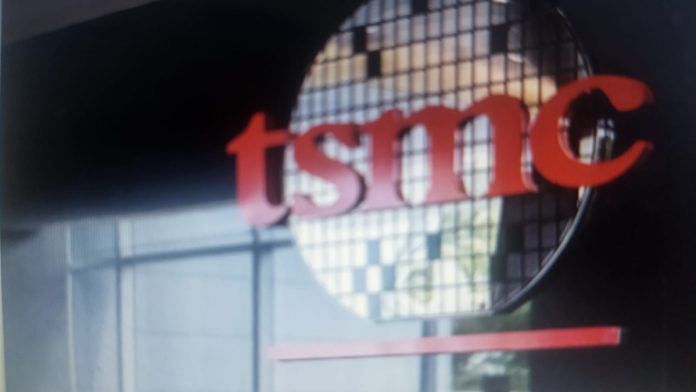New Delhi: A US academic has advocated that the Taiwan Semiconductor Manufacturing Company (TSMC), the world’s largest microchip manufacturer, be wired for self-destruction in the event of an invasion by China to deny the country access to the technology.
Jared M. McKinney, an assistant professor of international security at the US Air Force’s Air War College, highlighted in an opinion piece for Nikkei Asia last week, the significance of Taiwan’s semiconductor industry and its vulnerability in the event of a Chinese invasion.
Referring to Democrat Seth Moulton’s comments last month that the US should “blow up the TSMC” in case of a Chinese invasion — which the Congressman later said was blown out of context by the Chinese Communist Party (CCP) — McKinney suggested that the US should instead support Taiwan’s strategy involving self-destruction of key semiconductor nodes in order to deter China from accessing its vital chipmaking capabilities.
McKinney is the co-author of a 2021 research paper that proposed examining the potential role of the TSMC in deterring a Chinese invasion of Taiwan.
Semiconductors are used in a variety of important electronic products. There has already been a global shortage of this vital component during the pandemic when chip manufacturing companies scrambled to meet the increased demand.
Talking about his paper, McKinney wrote, “The original argument was not that the US should threaten to bomb TSMC — a hostile act that might result in the US becoming an active belligerent, but that Taiwan should threaten that key nodes of the industry will self-destruct in case of an invasion.” He added that the US may help by evacuating Taiwanese technicians.
“Such a strategy would credibly threaten to deny China access to the physical and human capital of Taiwan’s most strategic industry in the event of war, making the occurrence of such a conflict less likely according to the paradoxical logic of deterrence,” he further wrote.
McKinney disputed the notion that destroying the TSMC would harm the global economy, as, he said, China’s invasion would already have significant economic consequences.
Speaking to ThePrint about the impact of such a scenario, Prabhu Ram, head, Industry Intelligence Group (IIG), at CyberMedia Research (CMR), a Gurugram-based research firm, said it would have far-reaching consequences for the global electronics industry.
He added: “Given its position as the world’s largest and key player in advancing technology innovations in the semiconductor supply chain, the TSMC remains a critical lynchpin for the global electronics industry. Its destruction would disrupt global semiconductor supply, leading to severe shortages and driving up prices of electronic devices. Consumers would face limited availability and higher costs.”
Also read: Lender on a bender? Why China’s bailing BRI nations out of defaulting on Chinese loans
Looming threat
Taiwan supplies at least 60 per cent of the microchips produced globally, of which the TSMC has a share of around 54 per cent. According to a McKinsey and Company report, the semiconductor industry would be worth a trillion dollars by 2030.
As recently as April this year, China deployed warships and fighter jets to encircle Taiwan, putting on a show of military strength in the wake of Taiwanese President Tsai Ing-wen’s meeting with US House Speaker Kevin McCarthy, according to media reports.
Only last month, US Secretary of State Antony Blinken had said that a crisis between China and Taiwan would affect “literally every country on Earth”.
Prabhu Ram, quoted earlier, told ThePrint, “To mitigate risks, regional semiconductor hubs such as India are emerging, attracting investments and promoting local manufacturing. This trend aims to diversify the supply chain and reduce reliance on a single player or region.”
(Edited by Smriti Sinha)
Also read: Scramble for Pacific Islands: China, US, India & now South Korea vie for influence in remote nations



